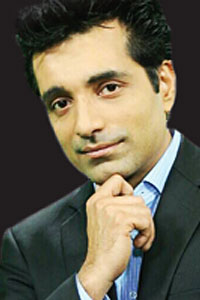
Thailand today is witnessing the rise of a new breed of younger political aspirants who look to shake up the old-fashioned establishment.
The announcement by Thanathorn Juangroongruangkit, the executive of Thai Summit Group, one of Thailand's leading auto-parts makers, that he had formed a party called Anakhot Mai (Future Forward), taps into a global trend.
Most of the founding members of Anakhot Mai party are aged below 40, with 16 of the 26 aged under 30.

Umesh Pandey is Editor, Bangkok Post.
Around the world, the rug beneath the feet of the political old guard has been shifting.
In 2015, Justin Trudeau, at 43 years old, became Canada's youngest prime minister. The trend picked up with the election of the 40-year-old Emmanuel Macron to the position of President of France in May of last year, and then 37-year old Jacinda Ardern as the Prime Minister of New Zealand in October.
Even in countries that traditionally opt for the older generation such as India, an upset in the by-elections in Uttar Pradesh saw the 29-year-old Praveen Kumar Nishad beat the Bharitiya Janta Party and its near three-decades of monopoly in the constituency, giving the Indian political scene a jolt like never before.
Thailand, though, had already accepted and adapted this shift toward a younger leadership years earlier.
Both Abhisit Vejjajiva and Yingluck Shinawatra became prime ministers in their mid-40s, in 2008 and 2011, respectively.
Mr Abhisit and Yingluck both had the backing of more senior politicians. In the Democrat Party, Chuan Leekpai, the so-called patriarch of the party, fully backed Mr Abhisit to take the helm of the government and the party, while Thaksin Shinawatra backed his sister Yingluck to be the prime minister following the 2011 election -- the last time Thailand elected its leader.
As Thailand prepares to head in less than a year for a vote to reinstall an elected government, following what will by then be nearly five years of military rule, the younger generation is preparing to play a major role in the formation of the new government.
The 44-year-old Chart Thai Pattana party's de-facto chief, Worawut Silpa-archa, is set to play the role of kingmaker as his party's support will be crucial to whichever government comes to power.
Meanwhile the slightly older Anutin Charnvirakul, 51, is seen as a potential compromise candidate to be the next prime minister if either of the two major political parties fail to muster enough seats in the parliament.
Another 51-year-old former cabinet minister of the former Yingluck government -- Chatchart Sittipunt -- has been rumored to be in the race to be a possible candidate for the premiership under the Pheu Thai banner.
Many of the new generation of political leaders in Thailand are around their early 50s at the most, making the emergence of new parties such as Anakhot Mai even more encouraging.
The rise of younger politicians, both in Thailand and abroad, is serving as a wakeup call to many of the older parties, with some starting to look for young blood to fill key positions in an attempt to create diversity and appear more vibrant.
What is needed, though, is for these new parties and young party members to come up with ideas and policies that would take the country forward.
It is only through such policies that these young Turks -- as one may call them as they are looking to change the landscape of Thai politics -- would be able to attract the attention of voters.
Although these young political aspirants are getting decent coverage in the media now, their longevity will depend on them coming out with policies that will appeal to the voters and resolve the real cause of dissatisfaction among the haves and have-nots.
We can only hope that these young people will use their energy and resources to help bring about a radical change to a society which has been held back for decades, and to end the internal domestic strife that has gripped the country for the past 12 years.
